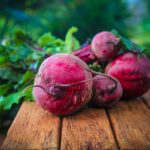The ketogenic diet, commonly known as the keto diet, has taken the fitness world by storm. With its promise of rapid weight loss and improved energy levels, it’s no wonder why so many people are hopping on the keto bandwagon. But what exactly is the keto diet, and how can you make sure you’re doing it right?
What is the Keto Diet?
The keto diet is a high-fat, low-carbohydrate eating plan that forces your body to burn fat instead of glucose for energy. By drastically reducing your intake of carbohydrates, your body enters a state of ketosis, where it begins to break down fat for energy instead of relying on glucose from carbohydrates.
What Can You Eat on the Keto Diet?
On the keto diet, you’ll want to prioritize foods that are high in healthy fats and protein and low in carbohydrates. Some examples of keto-approved foods include:
– Meats: beef, pork, chicken, and other meats that are high in protein and fat
– Fatty fish: salmon, tuna, and mackerel are great sources of healthy fats
– Nuts and seeds: almonds, walnuts, and chia seeds are all great sources of healthy fats and protein
– Low-carb vegetables: broccoli, cauliflower, spinach, and other leafy greens are all low in carbs and high in nutrients
– Dairy: cheese, butter, and heavy cream are all great sources of healthy fats
What Should You Avoid on the Keto Diet?
To stay in ketosis and reap the benefits of the keto diet, there are several foods and drinks you’ll want to avoid, including:
– Sugary foods and drinks: soda, candy, and other high-sugar foods can kick your body out of ketosis
– Grains and starches: bread, pasta, rice, and other starchy foods are high in carbs and should be avoided
– High-carb fruits: bananas, apples, and other fruits that are high in carbs should be limited or avoided altogether
– Processed foods: processed foods are often high in carbs and should be avoided on the keto diet
Tips for Success on the Keto Diet
If you’re new to the keto diet, it can be challenging to know where to start. Here are a few tips to help you succeed:
– Plan your meals ahead of time: meal planning can help ensure you’re getting enough healthy fats and protein while staying within your daily carb limit
– Stay hydrated: drinking plenty of water can help prevent dehydration, a common side effect of the keto diet
– Get enough electrolytes: electrolytes like sodium, potassium, and magnesium are essential on the keto diet and can be found in foods like spinach, avocados, and nuts
– Don’t be afraid of healthy fats: on the keto diet, healthy fats are your friend. Don’t be afraid to add avocado, nuts, and olive oil to your meals to increase your fat intake.
In conclusion, the keto diet can be an effective way to lose weight and improve your overall health. By focusing on healthy fats, protein, and low-carb vegetables, you can stay in ketosis and reap the benefits of this popular eating plan. With a little planning and dedication, you can make the keto diet work for you.




